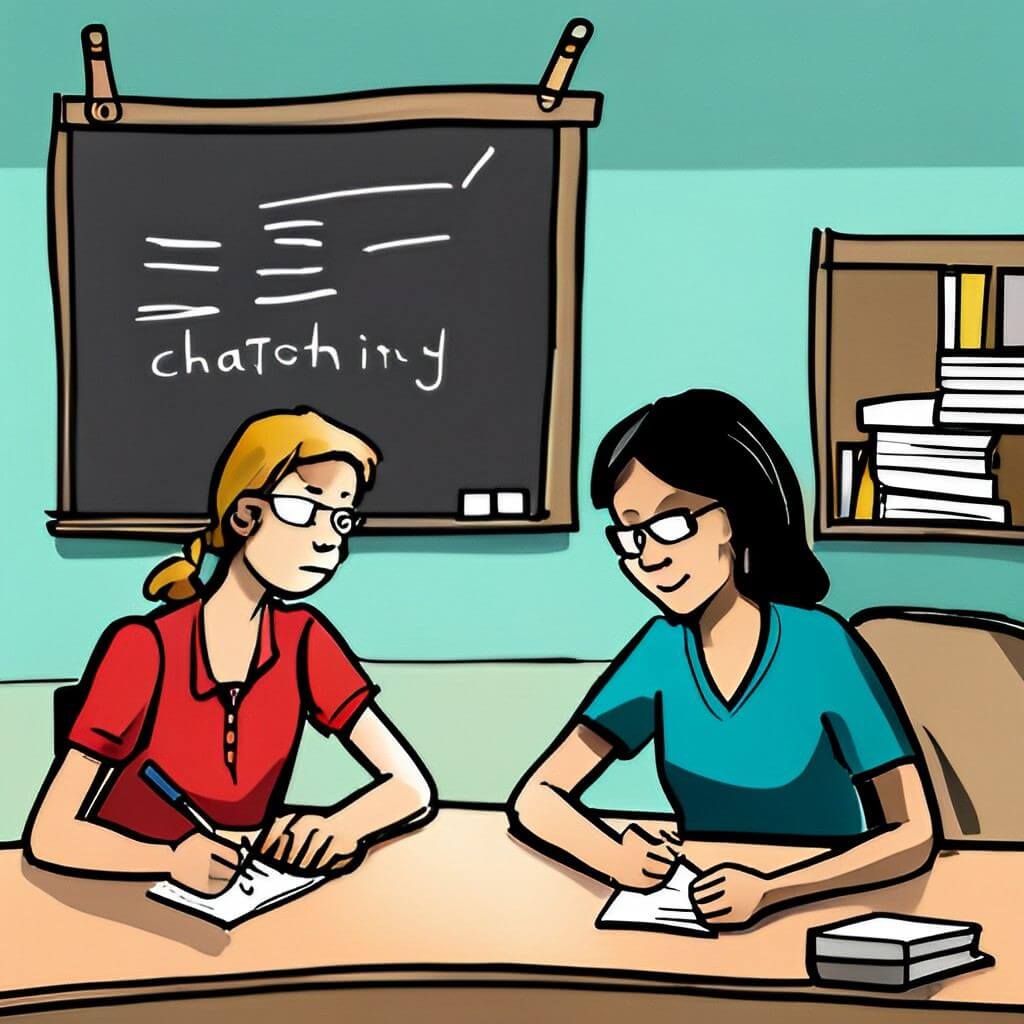As the new school year dawns, educators worldwide are gearing up for a groundbreaking academic year – one where students will wield ChatGPT, a powerful AI tool capable of answering questions by tapping into vast datasets. This innovative technology allows students to pose both simple and complex queries, receiving answers without the need for internet searches. While ChatGPT holds tremendous potential for enhancing learning experiences, it also raises concerns about academic integrity.
ChatGPT, often hailed as a game-changer in education, offers students a treasure trove of information at their fingertips. It can assist with homework, generate essay content, and provide quick answers to challenging questions. The simplicity and accessibility of this AI tool have prompted discussions about age restrictions, with the United Nations proposing raising the minimum age from 13 to 16.
The educational challenge
Despite potential age restrictions, ChatGPT remains accessible to secondary students. The stark reality facing educators is that students will continue using it, whether integrated into the curriculum or not. Gregory Sammut, head of IT at San Anton School, emphasizes the need for proactive educational measures. He believes that schools should embrace ChatGPT as a useful resource rather than a shortcut to answers.
Using ChatGPT as a learning Aid
Sammut, a member of the MATSEC examination board, has incorporated ChatGPT into his IT lessons for students in forms three to five. However, he underscores the importance of presenting ChatGPT as a springboard for further research rather than an infallible source. He narrates an incident where a student used ChatGPT to answer a question verbatim from the website’s content. This prompted him to emphasize the importance of critical thinking and using AI as a complementary tool rather than a substitute for genuine learning.
Academic integrity concerns
One of the concerns that educators like Sammut face is students submitting ChatGPT-generated work. Such submissions often contain dictionary-like definitions or excessive information, indicating that students may not fully comprehend the content. Sammut’s response has been to return such work and ask for revisions. This practice aims to prevent students from copying answers without retaining the knowledge, an issue that could compromise their overall learning experience.
Sammut also highlights a significant challenge – the varying levels of awareness among teachers regarding AI tools like ChatGPT. He believes that some students may be capitalizing on their teachers’ limited knowledge in this area. To bridge this gap, San Anton School plans to educate its staff about ChatGPT and similar tools in the upcoming academic year. Additionally, discussions will be held to formulate policies addressing the growing influence of AI tools in education.
Impact on exam results
The long-term impact of ChatGPT on students’ academic performance remains uncertain. Sammut acknowledges that while ChatGPT may boost homework grades due to its quick accessibility, it could potentially lead to lower exam results when students lack internet access. This raises questions about the need to adapt assessment methods to reflect the changing educational landscape.
Alexei Dingli, an artificial intelligence professor, suggests that the advent of AI tools like ChatGPT calls for a reevaluation of assessment methods at the university level. While he isn’t concerned about students using such software, he believes that educators should consider shifting their focus from regurgitating facts to nurturing critical thinking and problem-solving skills. As technology continues to disrupt the learning ecosystem, assessments must evolve to ensure that students are adequately prepared for the challenges of the future.
Government school onsiderations
The impact of ChatGPT and similar AI tools isn’t limited to private institutions like San Anton School. Questions regarding the use of AI tools in government schools have been raised, and it remains to be seen how the Education Ministry plans to address these concerns.
The advent of AI tools like ChatGPT has ushered in a new era in education. While these tools offer immense potential for improving learning experiences, they also pose challenges related to academic integrity and assessment methods. Educators like Gregory Sammut are taking proactive steps to ensure that students view ChatGPT as a valuable learning aid rather than a shortcut to answers. As the educational landscape continues to evolve, it is imperative that teachers and institutions adapt to effectively prepare students for the AI-driven future.





